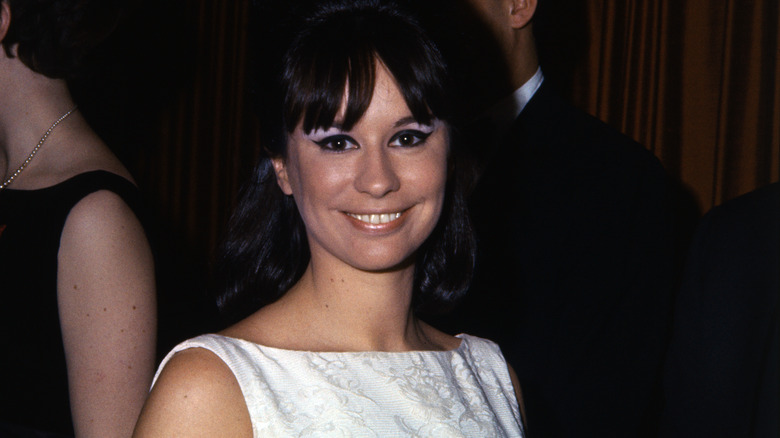The Death Of Brazilian Singer Astrud Gilberto
Astrud Gilberto, the Brazilian singer best known for her global hit track "The Girl from Ipanema," has died at the age of 83. Taking to Instagram on June 6, Astrud's granddaughter, Sofia Gilberto confirmed the news in a heartbreaking post featuring a montage of the late singer. "Life is beautiful, as the music says, but I come to bring the sad news that my grandmother became a star today and is next to my grandfather John Gilberto," Sofia wrote in the caption, originally typed in Portuguese. In the tribute, Sofia paid homage to Astrud's international success, noting that she would always be remembered for popularizing the Bossa Nova genre. "Astrud will be forever in our hearts and in this moment we have to celebrate Astrud," she concluded.
Frequent musical collaborator Paul Ricci announced her death, by the request of her family, in a somber Facebook post. "She was an important part of ALL that is Brazilian music in the world and she changed many lives with her energy. RIP from the 'chief' as she called me," Ricci wrote in his tribute. As the Latin music industry continues to mourn Astrud, there is no telling that she has left behind a lasting legacy that will live on in the hearts of many.
Astrud Gilberto became a superstar by chance
Some plan for success and others simply stumble into it — literally. During a trip to New York with her husband João Gilberto and Latin singer Antônio Carlos Jobim, in 1963, Astrud Gilberto landed her first professional recording after a producer asked for an English-speaking singer to do a cover of "The Girl From Ipanema." While João and Antônio spoke only their Portuguese, Astrud, whose father worked as a language professor was fluent in other languages — including English. So, despite having no prior professional singing experience, she was asked to record the song, per The Guardian.
With the record selling millions of copies worldwide, Astrud soon found herself at the forefront of fame. Sadly, she was unable to replicate the success she enjoyed with "The Girl From Ipanema." Though she continued to make music up until the '90s, the late singer led a very private life, often avoiding public events and interviews. "I firmly believe that any artist who becomes famous through their work — be it music, motion pictures or any other — does not have any moral obligation to satisfy the curiosity of journalists, fans or any members of the public about their private lives, or anything else that does not have any direct reflection on their work," she once said, via NBC News, in response to criticism over her private life.


